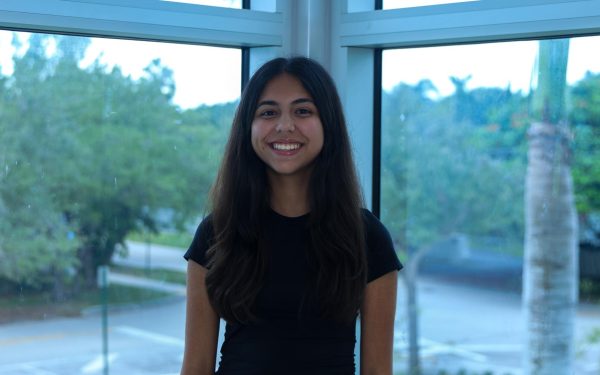In 1997, a small grant from the Dade County Council of Teachers in English prompted Miami Palmetto Senior High Language Arts Department Chair Andrea Spivak to create a book club for teachers and faculty members at her school. Since then, the club has served as an outlet for members to achieve their reading goals and bond with one another.
Every month, the club, known as A Very Novel Happy Hour, meets to discuss its latest read. read. Analyzing works from authors like Barbara Kingsolver to Arthur Golden, each book the club selects offers a cultural component, and their meetings continually find fun ways to reflect this.
“ … Lately, we’ve been having [our meetings] at our homes, and we try to have a sort of themed food to go along with it. So when we read “The Covenant of Water,” the member of the book club that hosted essentially had a whole spread of delicious Indian food out for us … I’m not sure what our menu is going to be for our upcoming meeting because we had, like, four books that we were reading over the summer. So we’ll see, it just might be a potluck …,” two-year member and Language Arts teacher Elena Ruiz said.
Whether at a restaurant or a member’s home, their meetings typically evolve into something deeper than a surface-level discussion of their current novel. This allows them to learn more about one another and form friendships beyond the professional environment.
“Oh, it’s been such a great bonding opportunity. I usually bring questions to the book club, and invariably, the discussion eventually moves away from the book, and we talk about our personal lives. It’s just an opportunity to understand one another, to share perspectives and it makes us closer,” Spivak said.
While members typically complete the novel by their meeting date, this has not always been the case.
“Once someone recommended a novel called “London.” It spanned from 54 B.C. to 1997, was 900 pages and only one person in the book club read it. It wasn’t my suggestion, some other member’s, but that was the only time that we really couldn’t discuss anything, because no one
read the book,” Spivak said.
Despite this, A Very Novel Happy Hour remains successful and motivates members to read even throughout busy schedules.
“I know that [the club] gives me accountability. I could let a book lie on my bedside for months, but if I know there’s a meeting, it forces me to continue reading and to be ready for that meeting. I also think that reading itself is so important because we learn so much about the world, and I think reading teaches us empathy, that’s a sentiment so much needed in this day and age, in this chaotic world,” Spivak said.
Members flow in and out of the club, remaining more active at some points than others. Yet, A Very Novel Happy Hour has created a community for Panther faculty and staff that stays with them, even when their time at MPSH concludes.
“I think everybody, especially readers, should really try to find a book community because I think in our very digital world, that is becoming almost … lost. I must say reading is a lost art because people are constantly reading on their phones with posts and so forth, but reading novels or listening to an audiobook with full-length novels – not a blurb from a Snapchat post or an Instagram post – is getting lost. Because of that, I think all readers should really go and make sure they seek out and find a book club and a group of people that they love to read with,” Ruiz said.




